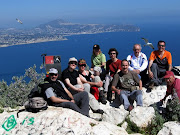 Chapters 3-4
Chapters 3-41.What’s there near the cave? What does it say? Why can’t they see it? 2.What is there at the end of the cave? What happens to Darel? 3.Tracy tries to make a phone call, why? Why does it not work? 4. What happens to Tracy’s phone? What does she have to find? 5.Why is Tracy frightened? What happens after that?
Chapters 5-6
- Two men enter the cave. Speak about what they do.
- What does the Boss do with the paintings?
- What does Bob have in his house? What for?
- Max opens the box. What happens then?
- Bob, who is an Aborigine, thinks that …..
- Max doesn’t need a doctor. Why?
- The men lost something in the cave. What?
- Darel and Tracy try to leave the tunnel but they can’t. Why
- Why do they know there’s another wat out?
CHAPTER 7-8
1.How can Darel and Tracy get out of the cave? Explain clearly
2.What do they tell Mrs Taylor?
3.Mrs Taylor wants to call the police. But, where's her phone?
4.What does Edi want to see?
5.Why can't they get into the cave again?
6.Where do they go now?
7.What has the policeman got?
8. How do they go back to Uluru?
9. What happens then?




